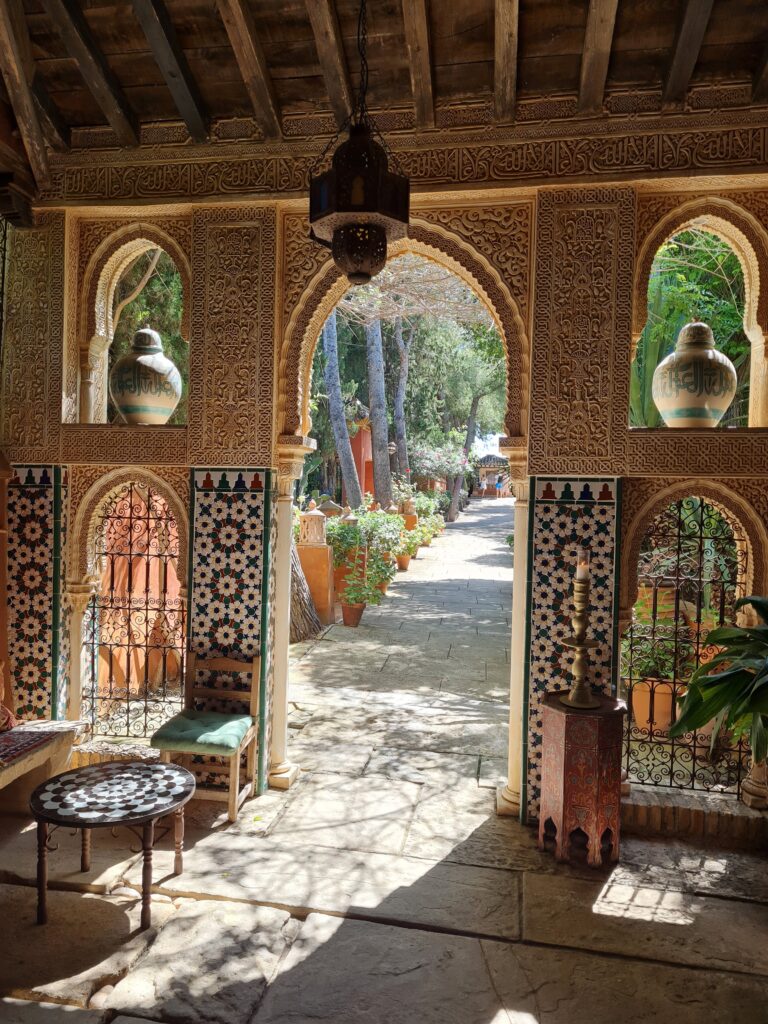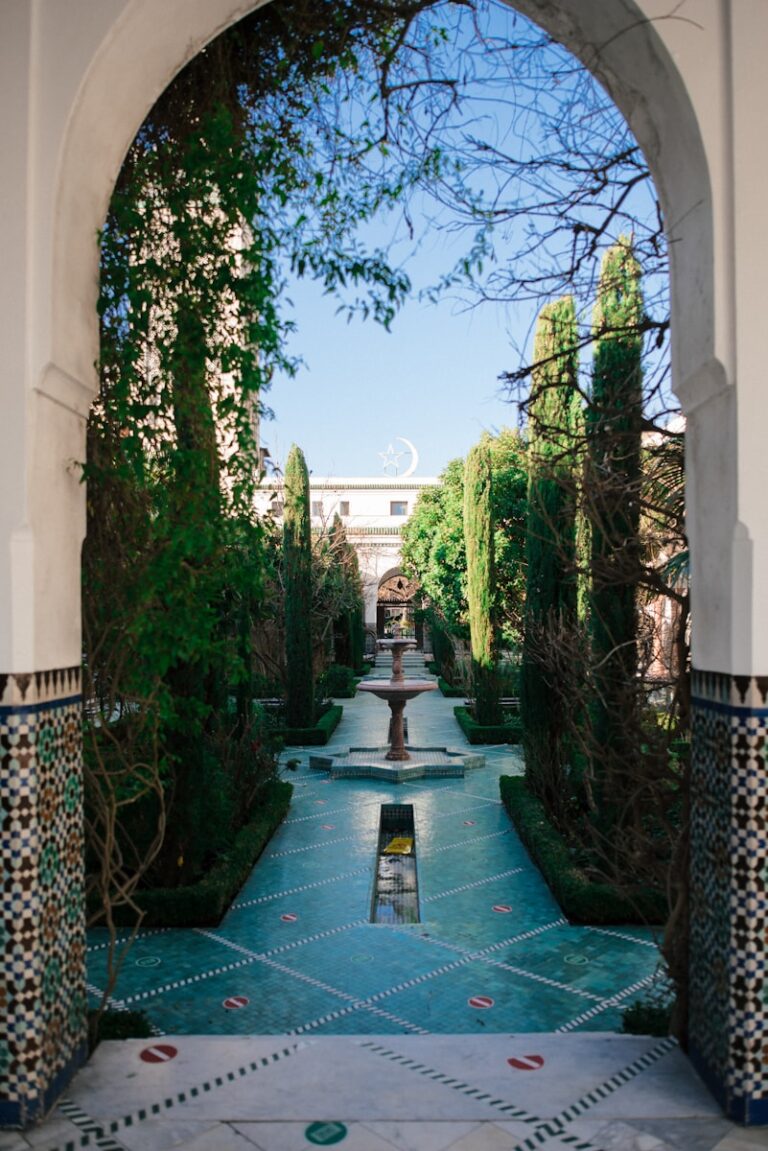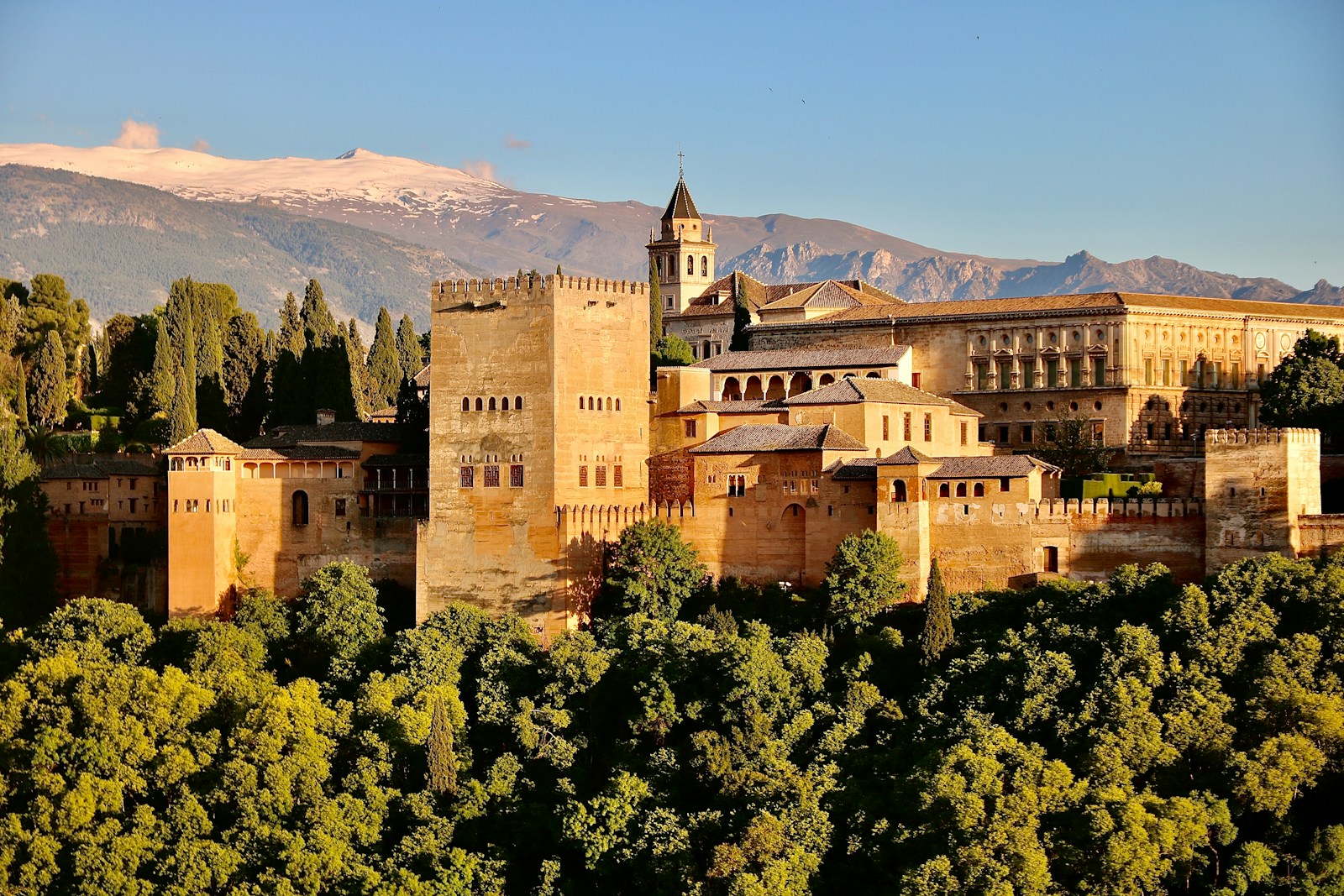
Alhambra
Islamic Gem
As-Salaam Alaikum Halal Nomads, nestled atop the picturesque hills of Granada, Spain, lies a treasure trove of history, art, and architectural marvels: the Alhambra. This breathtaking palace complex, with its intricate designs, serene gardens, and rich cultural heritage, stands as a testament to the brilliance of Islamic civilization and its enduring legacy in the heart of Europe.
A Historical Journey
The history of the Alhambra dates back to the 9th century when it was initially constructed as a small fortress by the Berber ruler Sawwar ben Hamdun. However, it was during the reign of the Nasrid dynasty in the 13th and 14th centuries that Alhambra truly flourished. Under the patronage of rulers such as Muhammad I, Yusuf I, and Muhammad V, the fortress was transformed into a palatial city with royal residences, courtyards, and gardens.
Architectural Marvel
The Alhambra’s architectural style is a stunning blend of Islamic, Moorish, and Andalusian influences, reflecting the region’s diverse cultural heritage. One of the most iconic features of the Alhambra is its intricate stucco ornamentation, characterised by geometric patterns, arabesques, and inscriptions from Islamic texts. These ornate designs adorn the palace’s walls, ceilings, and archways, creating a sense of awe and wonder for visitors.
The palace’s layout is designed to reflect the Islamic concept of paradise, with lush gardens, flowing water features, and shaded courtyards. The Generalife, the summer palace of the Nasrid rulers, is renowned for its exquisite gardens, filled with fragrant flowers, citrus trees, and tranquil fountains. Strolling through the gardens of Alhambra is a serene and beautiful experience.
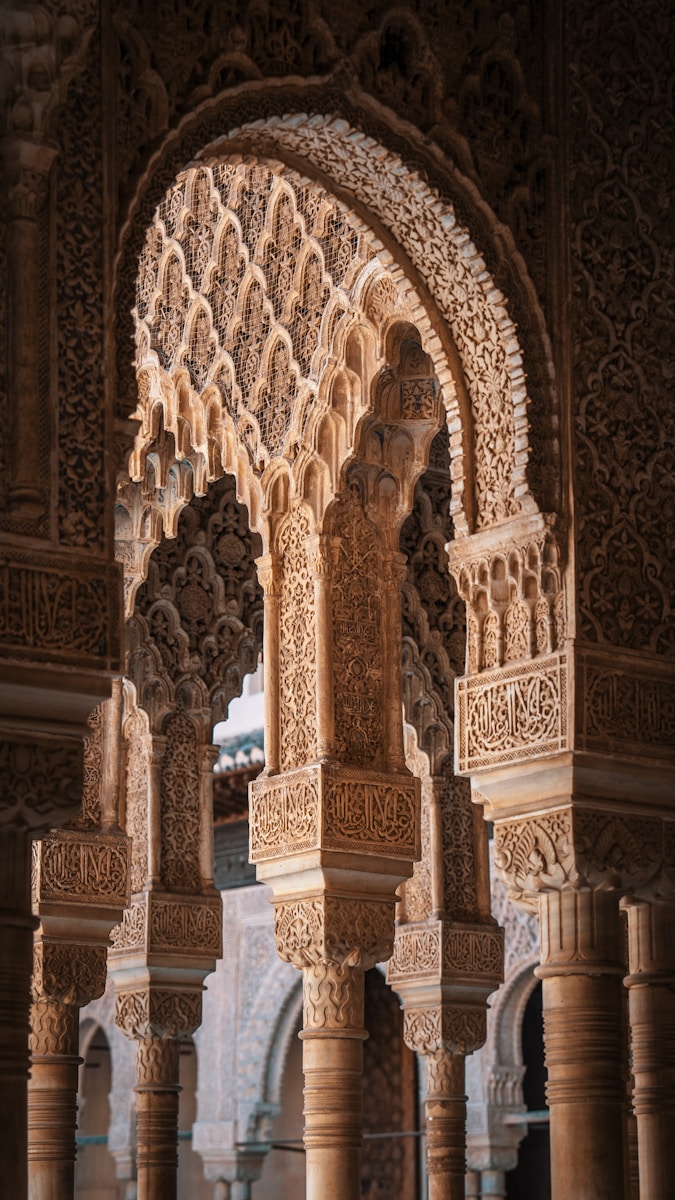
Cultural Heritage
Beyond its architectural splendour, the Alhambra symbolises the rich cultural heritage of Al-Andalus, the medieval Islamic caliphate in Spain. During the Nasrid dynasty, the Alhambra served as the seat of power and a centre of learning, attracting scholars, poets, and artists from across the Islamic world. It was a place where ideas were exchanged, and creativity flourished, leaving an indelible mark on the history of Spain, Europe and the rest of the world.
Alhambra’s cultural significance extends beyond its Islamic heritage. After the Christian Reconquista of Spain in the late 15th century, the fortress was preserved and renovated by successive Spanish monarchs, who recognised its architectural and historical importance. Today, the Alhambra is a UNESCO World Heritage site and one of Spain’s most visited tourist attractions, attracting millions of visitors from around the globe each year.
Visitor Experience
Alhambra is a magical place to visit for those who get the chance. Visitors can wander through the intricate corridors, explore the serene gardens, and marvel at the stunning views. It’s like being transported back to a time of grandeur and elegance. Guided tours and audio guides are available for those who want to delve deeper into the complex’s history and significance. Additionally, visitors can attend cultural events and exhibitions within Alhambra to enrich their experience and understanding of this architectural masterpiece.
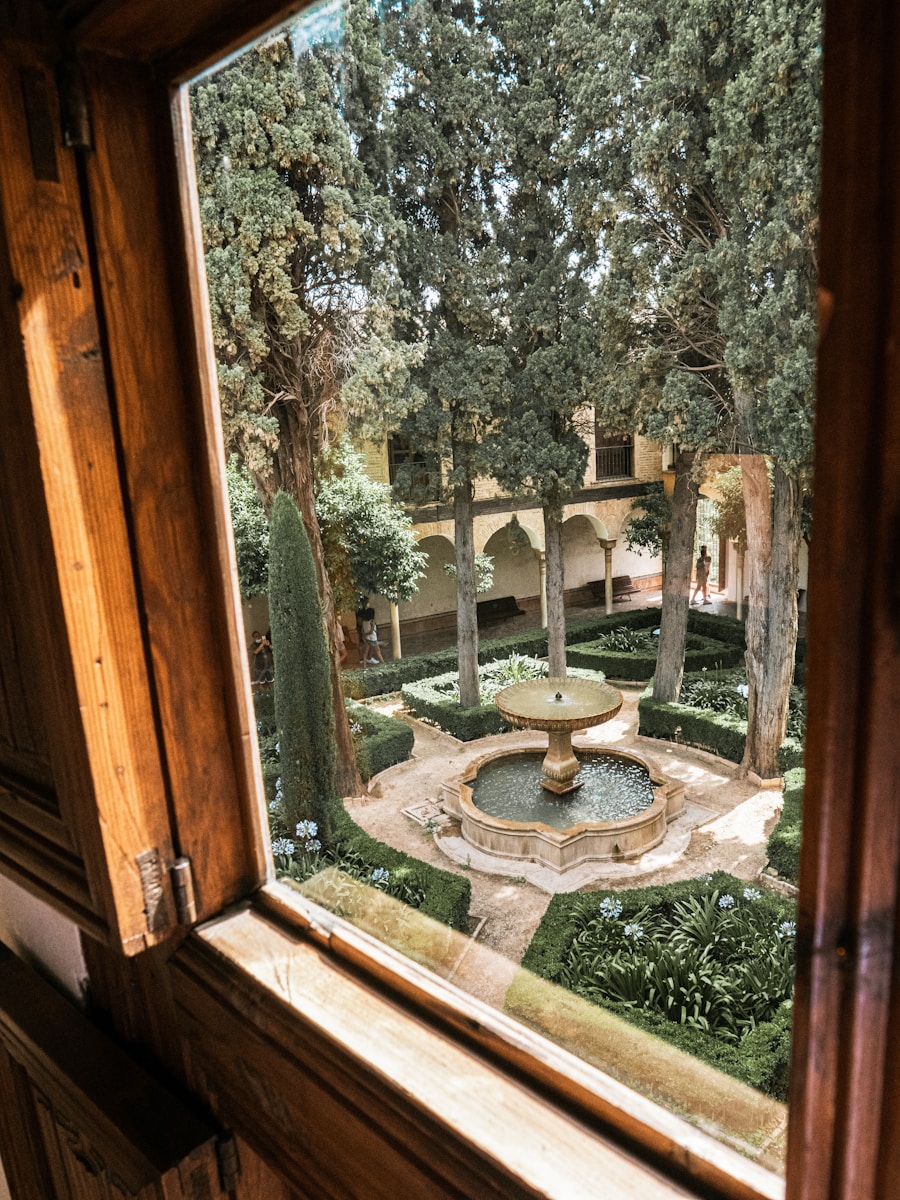
Conclusion
Alhambra is more than just a fortress or a palace; it is a testament to the beauty of Islamic art and architecture, a symbol of cultural exchange and creativity, and a source of inspiration for generations of visitors. As we wander through its labyrinthine corridors, gaze upon its ornate decorations, and marvel at its breathtaking vistas, we are reminded of this remarkable monument’s timeless allure and enduring legacy. The Alhambra bridges the past and the present, connecting us to a world of beauty, history, and wonder.
The religious aspect is only one part of it. We want to provide options to those who follow the tenets of Islam and make it easier for them to access foods.
But there are many other reasons why halal is beneficial that those who don’t follow Islam may not be aware of.
- Care of the Animal
- The Health Benefits
- Hygiene
Why do people leave their homes and voyage all over the globe?
- Challenging yourself
- Learning
- Expanding your perspective
- Getting in touch with yourself
- Appreciating your life
- Relaxing and rejuvenating
- Having an adventure
